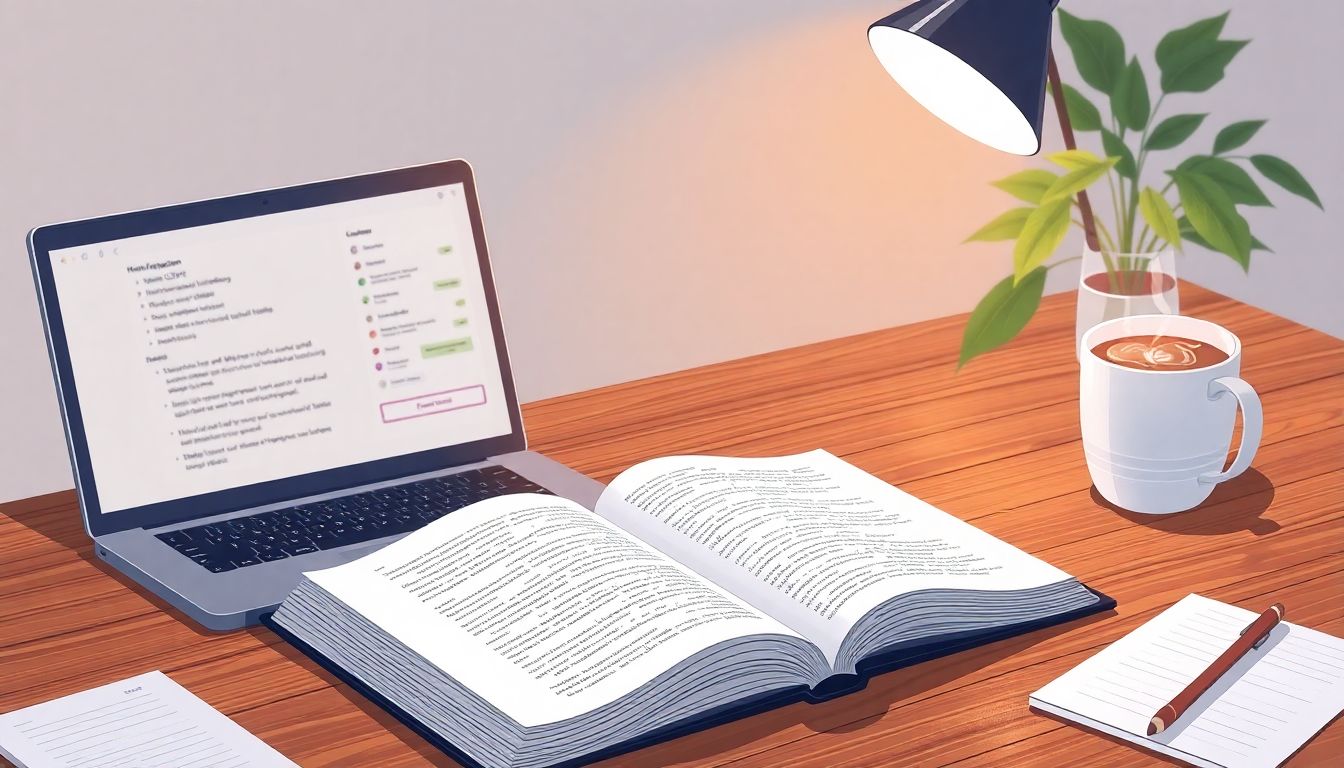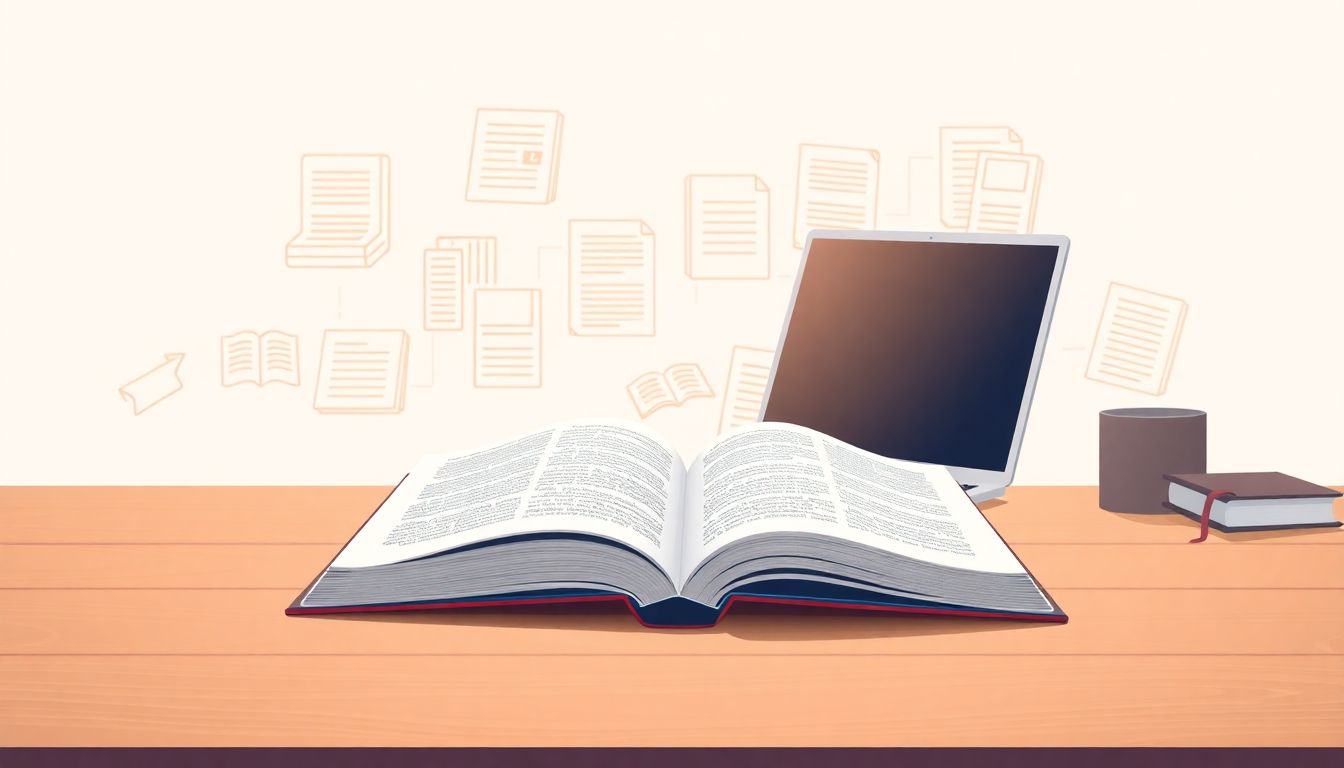Researching nonfiction books can feel like searching for a needle in a haystack, right? With so many sources, opinions, and facts out there, it’s easy to get overwhelmed and frustrated. You’re definitely not alone if you’ve found yourself struggling to sift through all the information.
But here’s the good news: if you stick around, I’ll show you how to use ChatGPT to streamline your research process and uncover reliable nonfiction sources. Whether you’re a student, a casual reader, or a budding author, you’ll find tips and tricks that make your journey much smoother.
From crafting effective prompts to verifying information, we’ll explore a range of strategies to enhance your nonfiction research skills. Let’s dive in and uncover the secrets to efficient book research with ChatGPT!
Key Takeaways
- Use ChatGPT to ask specific questions and get insights to guide your nonfiction research.
- Focus your search on a specific topic, then generate a list of credible books using ChatGPT.
- Craft effective prompts to enhance the quality of information you receive from ChatGPT.
- Refine broad questions into specific queries for better answers from ChatGPT.
- Verify information by cross-referencing with trusted sources and asking follow-up questions.
- Utilize ChatGPT for quick summaries of book content and key arguments.
- Explore different nonfiction genres using targeted prompts to understand their characteristics.
- Integrate ChatGPT into your research workflow for outlining, drafting, and scheduling.

How to Use ChatGPT for Researching Nonfiction Books
Using ChatGPT for researching nonfiction books is a game-changer for writers, students, and curious minds alike.
By leveraging AI’s vast knowledge base, you can streamline your research process while accessing reliable and diverse information.
Start by asking ChatGPT specific questions about your topic of interest, which will give you insights and directions for further reading.
For instance, you might begin with, “Provide an overview of the key themes in [Your Topic] nonfiction.”
This can help you identify not just the main ideas but also the books and authors you might want to explore further.
Step-by-Step Guide to Finding Reliable Nonfiction Sources
Finding reliable sources for nonfiction books involves a few essential steps that can enhance your research quality.
First, start with a specific topic or question to focus your search.
Then, use ChatGPT to generate a list of books or articles related to that topic.
Next, evaluate those sources by checking their authorship, publication date, and publisher to determine their credibility.
Ask ChatGPT for summaries or key takeaways of the sources to quickly assess their relevance.
Finally, make sure to cross-reference multiple sources to ensure a well-rounded understanding of your topic.
A helpful prompt might be, “List five credible books on [Your Topic] and summarize their main arguments.”
Effective ChatGPT Prompts for Nonfiction Book Research
Using well-crafted prompts with ChatGPT can drastically improve the quality of information you receive.
Here’s a list of effective prompts that can get you started:
- “What are the most influential nonfiction books on [Your Topic] and why?”
- “Summarize the key arguments of [Book Title] by [Author].”
- “Can you provide a comparison of [Book A] and [Book B] regarding their take on [Specific Issue]?”
- “What research findings support the claims made in [Book Title]?”
- “List notable nonfiction authors in [Your Area of Interest] and their key contributions.”
These prompts can help guide ChatGPT to provide the most relevant results for your research needs.
Tips for Refining Your Research Questions with ChatGPT
Refining your research questions is crucial for getting the most accurate and useful responses from ChatGPT.
Start by formulating broad questions and then narrow them down to specifics.
For instance, if you’re interested in climate change, instead of just asking, “Tell me about climate change,” you might refine it to, “What are the arguments made in nonfiction books about climate change impacts on agriculture?”
It’s also helpful to clarify the type of information you need—are you looking for summaries, comparisons, or critiques?
A good tip is to use prompts like, “What are the top three questions I should address when researching [Your Topic]?” to help spark ideas.
By being clear and precise in your queries, you’ll improve the quality of the responses you receive from ChatGPT.

How to Verify Information from ChatGPT
Verifying information from ChatGPT is essential to ensure accuracy and reliability in your research.
Start by comparing the information provided by ChatGPT with trusted sources like academic publications or articles from reputable websites.
A good way to verify information is by asking ChatGPT follow-up questions, such as, “What are the sources of your information on [specific topic]?”
Additionally, consider cross-referencing facts with multiple sources to confirm their validity; this helps build a more accurate picture of your topic.
For instance, you can prompt, “Provide three reputable sources that verify the claims about [specific claim].”
This not only gives you additional reading material but also strengthens your research foundation.
Remember, trusting but verifying is key—double-checking can save you from spreading misinformation.
Utilizing ChatGPT for Summarizing Nonfiction Book Content
ChatGPT can be incredibly helpful for summarizing nonfiction book content quickly and efficiently.
To get started, input prompts like, “Summarize the main arguments of [Book Title] by [Author].”
This will provide you with a concise overview of the book’s key themes and insights.
Another effective prompt could be, “List the five most important points discussed in [specific chapter or section].”
This approach allows you to encapsulate critical ideas without reading every page.
For instance, if you’re studying a book on psychology, you might ask, “Give a summary of the psychological theories presented in [Book Title].”
Always consider asking for a breakdown by sections or chapters, as this can facilitate better organization in your notes.
Exploring Different Nonfiction Genres with ChatGPT
ChatGPT can help you navigate the diverse world of nonfiction genres and understand their unique characteristics.
Start by asking, “What are the main types of nonfiction genres and their defining features?”
Examples of nonfiction genres include memoirs, biographies, self-help, true crime, and educational texts.
To explore further, use prompts like, “List ten influential books in the [specific genre] genre and summarize their impact.”
This gives you a rounded view not just of individual works but their significance in the broader literary landscape.
You can also ask specific questions such as, “What are the subgenres within [Genre] and how do they differ?”
This is a great way to discover different writing styles and topics you might want to delve into.
Integrating ChatGPT into Your Research Workflow
Incorporating ChatGPT into your research workflow can streamline your processes and enhance productivity.
Begin by setting clear roles for ChatGPT, such as brainstorming ideas, summarizing findings, or generating outlines.
A prompt like, “Help me create an outline for a research paper on [Your Topic].” can provide a structured approach to your writing.
Consider using it for drafting emails to authors or researchers; simply prompt, “Draft an email to [Author’s Name] requesting more information on [specific topic].”
You can also leverage ChatGPT for scheduling, asking for a timeline, like, “What is a realistic timeline for completing a research project on [Your Topic]?”
This helps you stay organized and maintain momentum throughout your research.
Lastly, always review and edit the output provided by ChatGPT to ensure that it aligns with your voice and objectives.

Common Mistakes to Avoid When Researching with ChatGPT
While ChatGPT is a powerful tool for research, some common mistakes can hinder your results.
One major pitfall is failing to provide specific prompts, which can lead to vague or irrelevant answers.
Instead, be detailed in your questions. For example, instead of asking, “Tell me about climate change,” try, “What are the major findings in nonfiction books about climate change impacts on coastal cities?”
Another mistake is relying solely on ChatGPT for your information without cross-referencing with credible sources.
It’s important to validate the information you gather. Practice asking follow-up questions like, “Can you provide sources for your claims on [specific topic]?”
In addition, avoid overloading your prompts with multiple questions, as ChatGPT may struggle to address everything adequately.
Keep it simple and focused. You might prompt ChatGPT with, “What are the key arguments made in [specific book]?”
Lastly, don’t forget to incorporate your critical thinking and analysis instead of taking everything at face value.
ChatGPT can guide you, but it’s your role to assess the validity and relevance of the information it provides.
Resources for Enhancing Your Nonfiction Research Skills
To further develop your nonfiction research skills, a variety of resources are available to help you grow.
Start with books on research methodology such as “The Craft of Research” by Wayne C. Booth, which provides foundational knowledge.
Online courses on platforms like Coursera and Udemy cover topics ranging from structured research techniques to effective nonfiction writing.
You might also consider resources tailored to your specific interests, like guides on environmental writing or memoir crafting.
Don’t forget about academic databases such as JSTOR or Google Scholar for accessing peer-reviewed articles and credible papers.
Following relevant blogs and podcasts can provide insights and tips from seasoned nonfiction authors and researchers.
Engage with communities on platforms like Reddit or LinkedIn groups dedicated to nonfiction writing and research.
Lastly, participate in workshops or writing groups to sharpen your skills through practice and feedback.
These resources can provide you with a solid grounding and help you tackle your nonfiction projects with confidence.
FAQs
Effective prompts include specific topics, questions to clarify themes, and requests for summaries or comparisons. For example, “Summarize key points from the book ‘Sapiens’ by Yuval Noah Harari.”
To verify information, cross-reference with credible sources such as academic journals, reputable websites, and expert opinions. Always check multiple sources for consistency and reliability before incorporating the information into your research.
Avoid vague questions, relying solely on ChatGPT, and ignoring verification of information. Also, steer clear of using limited perspectives. Broadening your queries leads to better insights and more nuanced understanding of topics.
Incorporate ChatGPT by using it for brainstorming, drafting initial outlines, and summarizing key findings. Integrate it at various stages of your research to enhance productivity and clarity in your writing process.
